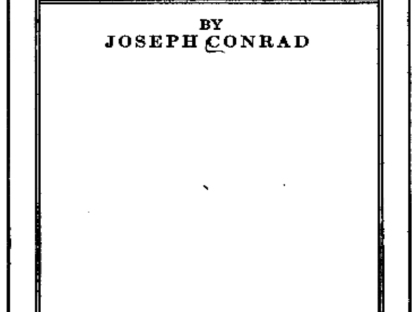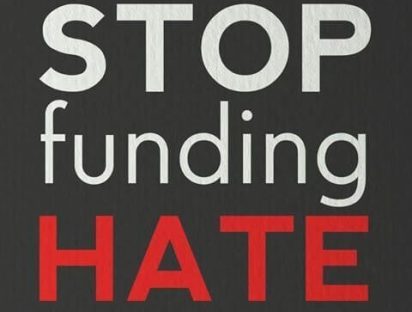 The front page of the French newspaper L’Equipe on 16 June, “Comme en 18” (“Like in 18”), which celebrated the French football team’s victory over Germany in the Euro 2020, provoked reactions of disapproval. It was not only seen as a reference to the style of play of the 2018 World Cup winning French team, but also as an allusion to the end of the First World War – “L’Equipe is bringing out its old nationalist corpses from the formaldehyde,” said Radio France’s correspondent in Germany (1). It is remarkable that the negative comments come mainly from the press. In this article, we discuss this case through one of the press’s social responsibility theories. The formulation we used in our title – “How context gives meaning” – is based on the first of the five ideals that were proposed in 1947 by the US Commission on Freedom of the Press, otherwise known as the Hutchins Commission, in its report: “A Free and Responsible Press” (2). Its aim was to answer the question: “Is the freedom of the press in danger?” (3). The first ideal, which is about veracity, refers to the idea of context. The Commission expressed it as follows:
The front page of the French newspaper L’Equipe on 16 June, “Comme en 18” (“Like in 18”), which celebrated the French football team’s victory over Germany in the Euro 2020, provoked reactions of disapproval. It was not only seen as a reference to the style of play of the 2018 World Cup winning French team, but also as an allusion to the end of the First World War – “L’Equipe is bringing out its old nationalist corpses from the formaldehyde,” said Radio France’s correspondent in Germany (1). It is remarkable that the negative comments come mainly from the press. In this article, we discuss this case through one of the press’s social responsibility theories. The formulation we used in our title – “How context gives meaning” – is based on the first of the five ideals that were proposed in 1947 by the US Commission on Freedom of the Press, otherwise known as the Hutchins Commission, in its report: “A Free and Responsible Press” (2). Its aim was to answer the question: “Is the freedom of the press in danger?” (3). The first ideal, which is about veracity, refers to the idea of context. The Commission expressed it as follows:
“Today our society needs […] a truthful, comprehensive, and intelligent account of the day’s events in a context which gives them meaning.”
The Hutchins Commission report defended freedom of expression and affirmed the view that the press should serve society. In particular, it emphasised that “[people] get their picture of one another through the press,” and noted that one of the duties of the news media is to “to enable the reader to set a single event in its proper perspective.” As with all the arguments developed in the report, these last two observations are applicable to news titles. The second – “setting a single event in its proper perspective” – clearly refers to context. The “proper perspective” can indeed be understood as “the proper context of interpretation,” i.e. the set of mental representations that allow the recipient of a message, for example the reader of the press, to understand the text, to interpret it in accordance with the context provided by the sender. If the title of L’Equipe had been “Comme en 2018” (“Like in 2018”), the context would have been limited to beliefs about the style of play adopted by the French football team when they won the 2018 World Cup. “Comme en 18” shares this reference with “Comme en 2018,” but adds others, notably (and principally) the one noted in the press on 16 June: “1918, the year in which France triumphed over a then-hated Germany, ending the First World War” (4). Several news media used the expression “double meaning:”
“It is difficult […] not to detect an implicit double meaning with 1918” (5);
“The double meaning headline chosen by the daily sports newspaper the day after the French team’s victory has caused consternation among historians and personalities” (6);
“No one can escape the double meaning on the 14-18 war” (7).
But one can imagine other meanings. A numerologist, whose memory of the First World War would not be activated, nor popular French expressions such as “Comme en 14” or “Comme en 40,” would perhaps think of the value of the number 18, which is “a picture of goal setting,” the 1 referring to “the self, its accomplishments and feelings” and the 8 to “physical endurance, rhythm and movement, music and athletics” – or the fact that in the Latin alphabet the letter R is the eighteenth letter, a letter that “is concerned with man’s spiritual unfoldment” (8). The moral evaluation of “Comme en 18” should focus on the responsibility of the news media. Dan Sperber and Deidre Wilson observe that “a speaker who intends an utterance to be interpreted in a particular way must also expect the hearer to be able to supply a context which allows that interpretation to be recovered” (9). On the other hand, the brevity of L’Equipe’s headline and its familiar yet enigmatic form – a Google search reveals that the phrase (in French) “France won the 18 World Cup” generates no results, while “France won the 2018 World Cup” generates about 49,000 answers – seems to correspond to “the writer’s desire not to take up too much space and to arouse the reader’s curiosity by omitting certain information” (10). These two observations suggest that the reader’s responsibility in interpreting “Comme en 18” is limited: L’Equipe may have had reason to believe that its readers would interpret this headline according to the context leading to the intended interpretation (a double interpretation: “2018” and “18”), and the form of the headline was intended to arouse their curiosity, i.e., to encourage them to look for another context of interpretation than the more salient one of the 2018 World Cup. The words we quoted at the beginning – to provide “a truthful, comprehensive, and intelligent account of the day’s events in a context which gives them meaning,” “to enable the reader to set a single event in its proper perspective” – can be used as a basis for moral evaluation. The same is true of Clifford Christians and Kaarle Nordenstreng’s theory of the social responsibility of the press, which has its roots in the recommendations of the Hutchins Commission (11). According to Christians and Nordenstreng, media communication should be guided by three principles: respecting the dignity of the human person; not harming others (nonmaleficence) – with special attention to the vulnerable; and conforming to the truth (truthfulness) – in particular not lying. It can be argued that “Comme en 18” was an attempt at humour. But the principles of Christians and Nordenstreng can also be applied to humour. In a recent article, the philosopher Nathan Miczo mobilised them in relation to the news media’s perception of jokes about the Covid-19 epidemic (12). For Miczo, the principle of dignity requires that humour comes from us, that it “resonates with one’s experiences.” The principle of nonmaleficence states that no harm should come to anyone, especially victims and fragile populations, and that witticisms should not be about the tragedy itself. Finally, the principle of truthfulness requires that the humour be a true account of the facts. It will be appreciated how these three principles can be used in the moral assessment of “Comme en 18,” but the principle of nonmaleficence, which takes into consideration certain stakeholders (e.g. German readers), and the principle of truthfulness are probably the most relevant. Alain Anquetil (1) “‘Comme en 18’ : la une de ‘l’Equipe’ sur la victoire des Bleus face à l’Allemagne ne passe pas,” L’Obs, 16 June 2021. (2) The Commission on Freedom of the Press, A Free and responsible press. A General report on mass communication: newspapers, radio, motion pictures, magazines, and books, The University of Chicago Press, 1947. (3) Ibid. (4) “Après la une polémique de L’Equipe, l’ambassadeur allemand en France calme le jeu,” Libération, 16 June 2021. (5) Ibid. (6) “‘Comme en 18’ : la une de ‘l’Equipe’ sur la victoire des Bleus face à l’Allemagne ne passe pas,” op. cit. (7) “‘Comme en 18’: la Une de L’Equipe après France-Allemagne fait polémique,” La Voix du Nord, 16 June 2021. (8) S. Blackwell Lawrence, The secret science of Numerology. The hidden meaning of numbers and letters, New Page Books, 2001 (9) D.
The front page of the French newspaper L’Equipe on 16 June, “Comme en 18” (“Like in 18”), which celebrated the French football team’s victory over Germany in the Euro 2020, provoked reactions of disapproval. It was not only seen as a reference to the style of play of the 2018 World Cup winning French team, but also as an allusion to the end of the First World War – “L’Equipe is bringing out its old nationalist corpses from the formaldehyde,” said Radio France’s correspondent in Germany (1). It is remarkable that the negative comments come mainly from the press. In this article, we discuss this case through one of the press’s social responsibility theories.
The formulation we used in our title – “How context gives meaning” – is based on the first of the five ideals that were proposed in 1947 by the US Commission on Freedom of the Press, otherwise known as the Hutchins Commission, in its report: “A Free and Responsible Press” (2). Its aim was to answer the question: “Is the freedom of the press in danger?” (3).
The first ideal, which is about veracity, refers to the idea of context. The Commission expressed it as follows:
“Today our society needs […] a truthful, comprehensive, and intelligent account of the day’s events in a context which gives them meaning.”
The Hutchins Commission report defended freedom of expression and affirmed the view that the press should serve society. In particular, it emphasised that “[people] get their picture of one another through the press,” and noted that one of the duties of the news media is to “to enable the reader to set a single event in its proper perspective.”
As with all the arguments developed in the report, these last two observations are applicable to news titles. The second – “setting a single event in its proper perspective” – clearly refers to context. The “proper perspective” can indeed be understood as “the proper context of interpretation,” i.e. the set of mental representations that allow the recipient of a message, for example the reader of the press, to understand the text, to interpret it in accordance with the context provided by the sender.
If the title of L’Equipe had been “Comme en 2018” (“Like in 2018”), the context would have been limited to beliefs about the style of play adopted by the French football team when they won the 2018 World Cup. “Comme en 18” shares this reference with “Comme en 2018,” but adds others, notably (and principally) the one noted in the press on 16 June: “1918, the year in which France triumphed over a then-hated Germany, ending the First World War” (4).
Several news media used the expression “double meaning:”
“It is difficult […] not to detect an implicit double meaning with 1918” (5);
“The double meaning headline chosen by the daily sports newspaper the day after the French team’s victory has caused consternation among historians and personalities” (6);
“No one can escape the double meaning on the 14-18 war” (7).
But one can imagine other meanings. A numerologist, whose memory of the First World War would not be activated, nor popular French expressions such as “Comme en 14” or “Comme en 40,” would perhaps think of the value of the number 18, which is “a picture of goal setting,” the 1 referring to “the self, its accomplishments and feelings” and the 8 to “physical endurance, rhythm and movement, music and athletics” – or the fact that in the Latin alphabet the letter R is the eighteenth letter, a letter that “is concerned with man’s spiritual unfoldment” (8).
The moral evaluation of “Comme en 18” should focus on the responsibility of the news media. Dan Sperber and Deidre Wilson observe that “a speaker who intends an utterance to be interpreted in a particular way must also expect the hearer to be able to supply a context which allows that interpretation to be recovered” (9). On the other hand, the brevity of L’Equipe’s headline and its familiar yet enigmatic form – a Google search reveals that the phrase (in French) “France won the 18 World Cup” generates no results, while “France won the 2018 World Cup” generates about 49,000 answers – seems to correspond to “the writer’s desire not to take up too much space and to arouse the reader’s curiosity by omitting certain information” (10).
These two observations suggest that the reader’s responsibility in interpreting “Comme en 18” is limited: L’Equipe may have had reason to believe that its readers would interpret this headline according to the context leading to the intended interpretation (a double interpretation: “2018” and “18”), and the form of the headline was intended to arouse their curiosity, i.e., to encourage them to look for another context of interpretation than the more salient one of the 2018 World Cup.
The words we quoted at the beginning – to provide “a truthful, comprehensive, and intelligent account of the day’s events in a context which gives them meaning,” “to enable the reader to set a single event in its proper perspective” – can be used as a basis for moral evaluation. The same is true of Clifford Christians and Kaarle Nordenstreng’s theory of the social responsibility of the press, which has its roots in the recommendations of the Hutchins Commission (11).
According to Christians and Nordenstreng, media communication should be guided by three principles: respecting the dignity of the human person; not harming others (nonmaleficence) – with special attention to the vulnerable; and conforming to the truth (truthfulness) – in particular not lying.
It can be argued that “Comme en 18” was an attempt at humour. But the principles of Christians and Nordenstreng can also be applied to humour. In a recent article, the philosopher Nathan Miczo mobilised them in relation to the news media’s perception of jokes about the Covid-19 epidemic (12).
For Miczo, the principle of dignity requires that humour comes from us, that it “resonates with one’s experiences.” The principle of nonmaleficence states that no harm should come to anyone, especially victims and fragile populations, and that witticisms should not be about the tragedy itself. Finally, the principle of truthfulness requires that the humour be a true account of the facts.
It will be appreciated how these three principles can be used in the moral assessment of “Comme en 18,” but the principle of nonmaleficence, which takes into consideration certain stakeholders (e.g. German readers), and the principle of truthfulness are probably the most relevant.
Alain Anquetil
(1) “‘Comme en 18’ : la une de ‘l’Equipe’ sur la victoire des Bleus face à l’Allemagne ne passe pas,” L’Obs, 16 June 2021.
(2) The Commission on Freedom of the Press, A Free and responsible press. A General report on mass communication: newspapers, radio, motion pictures, magazines, and books, The University of Chicago Press, 1947.
(3) Ibid.
(4) “Après la une polémique de L’Equipe, l’ambassadeur allemand en France calme le jeu,” Libération, 16 June 2021.
(5) Ibid.
(6) “‘Comme en 18’ : la une de ‘l’Equipe’ sur la victoire des Bleus face à l’Allemagne ne passe pas,” op. cit.
(7) “‘Comme en 18’: la Une de L’Equipe après France-Allemagne fait polémique,” La Voix du Nord, 16 June 2021.
(8) S. Blackwell Lawrence, The secret science of Numerology. The hidden meaning of numbers and letters, New Page Books, 2001
(9) D. Sperber and D. Wilson, Relevance. Communication and cognition, 2nd edition, Blackwell Publishers,1995.
(10) M. Salles, “Information structure and referential choice in news headlines,” Syntax and Semantics, 17(1), 2016, pp. 135-152.
(11) C. G. Clifford and K. Nordenstreng, “Social responsibility worldwide,” Journal of Mass Media Ethics, 19(1), 2004, pp. 3-28.
(12) N. Miczo, “The ethics of news media reporting on coronavirus humour,” Humor – International Journal of Humor Research, 34(2), 2021, pp. 305-327. Looking at articles that appeared mostly in the US press during the first wave of the COVID-19 pandemic in spring 2020, Miczo noted, for example, that the media almost systematically asked the question of their moral appropriateness.




